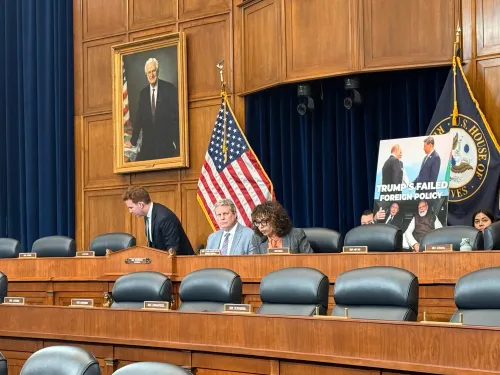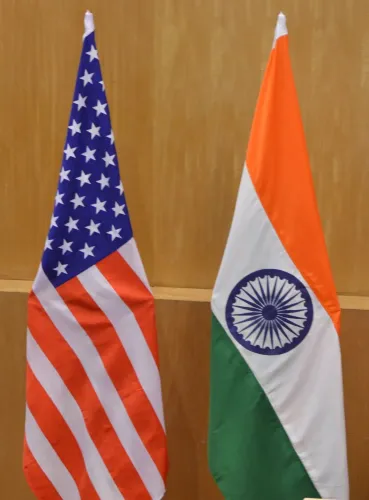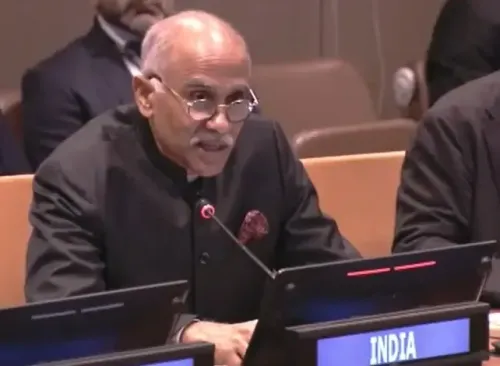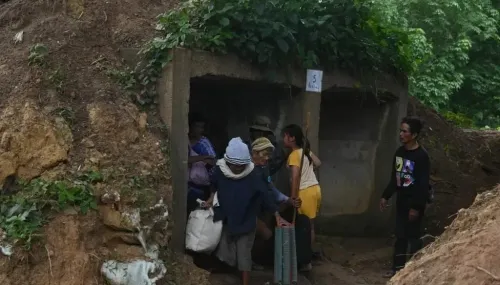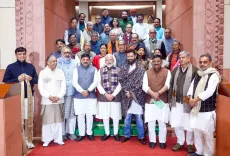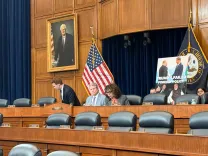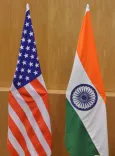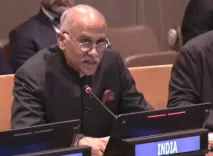How is Egypt Supporting India in Its Fight Against Terrorism?
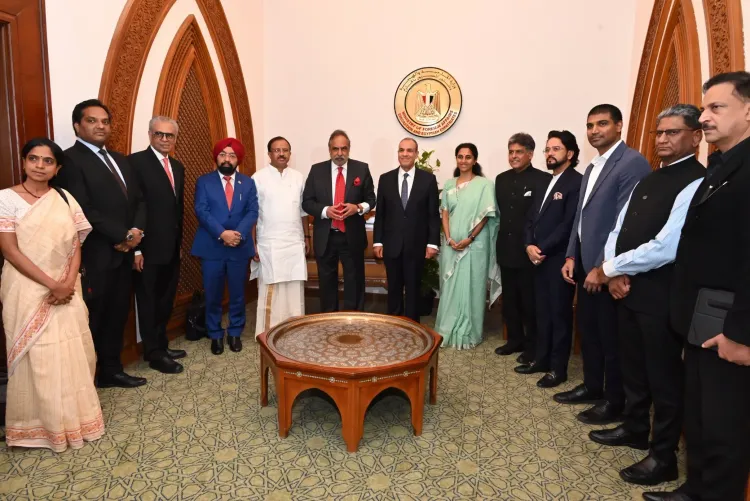
Synopsis
Key Takeaways
- India and Egypt reaffirmed their commitment to combat terrorism.
- Strengthening bilateral cooperation in counter-terrorism is a priority.
- Acknowledgment of the growing strategic partnership between both nations.
- Engagement with the Indian community in Egypt highlights diaspora support.
- Operation Sindoor exemplifies India's diplomatic outreach against terrorism.
Cairo, June 3 (NationPress) A prominent multi-party delegation from India, guided by Nationalist Congress Party (NCP-SP) leader Supriya Sule, met with Egypt's Foreign Minister Badr Abdelatty on Tuesday. This meeting served to reaffirm India's unified dedication to combat terrorism and express sincere gratitude for Egypt's robust denunciation of the April 22 Pahalgam terror attack.
During their discussions, Abdelatty emphasized Egypt's unwavering support for India in the battle against terrorism, advocating for the enhancement of bilateral cooperation in this crucial area. Both parties recognized the increasing dynamism of the strategic partnership between India and Egypt.
Earlier in the day, the delegation also met with League of Arab States Secretary-General Ahmed Aboul Gheit, where India's unified approach and collective resolve to tackle terrorism were underscored. The leaders affirmed that combating terrorism remains a top priority for both the Arab League and India.
The talks also revolved around India's broad political, economic, and cultural interactions with the Arab States.
The League of Arab States, headquartered in Cairo, is an intergovernmental organization comprising all the Arab nations in the Middle East and North Africa, established on March 22, 1945, following the Alexandria Protocol adoption in 1944.
At present, it includes 22 Arab countries, including Algeria, Bahrain, Comoros, Djibouti, Egypt, Iraq, Jordan, Kuwait, Lebanon, Libya, Mauritania, Morocco, Oman, Palestine, Qatar, Saudi Arabia, Somalia, Sudan, Syria, Tunisia, the United Arab Emirates, and Yemen.
The delegation also engaged with the vibrant Indian community residing in Egypt.
“The community expressed their support for the delegation's visit and the important message they brought to combat terrorism,” stated the Indian Embassy in Cairo.
On the previous day, the delegation was briefed by Indian Ambassador to Egypt Suresh Reddy about the robust India-Egypt Strategic Partnership, Egypt's firm position against terrorism, solidarity with India following the April 22 Pahalgam attacks, and the close collaboration in counter-terrorism efforts.
This was succeeded by a constructive engagement at the Egyptian Senate House with Senator Hossam Al-Khouly from the Mostaqbal Watan Party and MP Hazem Omar, along with the Chairmen and members of other Parliamentary Committees.
The Senate reiterated support for India and acknowledged the significance of the close Strategic Partnership between India and Egypt.
This was followed by fruitful discussions with Foreign Affairs Committee Chairman MP Karim Darwish and other distinguished members of the Egyptian House of Representatives.
The Indian parliamentarians also had enlightening discussions with key figures in Egypt, including former ministers, renowned authors, and thought leaders.
The exchanges enhanced understanding and appreciation of India's commitment to economic growth, equitable development, and zero tolerance toward terrorism.
The delegation also paid tribute to Mahatma Gandhi at the Al-Horreya Park in Zamalek, Cairo.
This diplomatic outreach, known as Operation Sindoor, carried a strong message of India's unwavering stance on zero tolerance against terrorism, culminating in Egypt after successful visits to Ethiopia, South Africa, and Qatar.
The delegation, led by Supriya Sule, included BJP leaders Rajiv Pratap Rudy, Anurag Thakur, and V. Muraleedharan, Congress leaders Manish Tewari and Anand Sharma, Lavu Sri Krishna Devarayalu from the Telugu Desam Party, Vikramjeet Singh Sawhney from the Aam Aadmi Party, and former diplomat Syed Akbaruddin.
This visit continues India's strategic outreach to gain international backing against cross-border terrorism originating from Pakistan.


